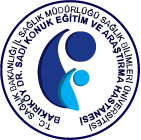ABSTRACT
Conclusion:
When pregnant women are positive for HBs and other markers of hepatitis, antiserum should be administered after birth to prevent the spread of HBV.
Results:
From a total of 397 third trimester pregnancies, 37 were HBs positive (9.3%) and 110 were anti-HBs positive (27.7%). The children of the 37 HBs positive women were vaccinnated and evaluated one year later. Of the 31 who could be contacted, 28 (90.3%) were HBs positive and 3 (9.7%)were anti-HBs positive (spontaneous seroconversion). 25 (89.3%) out of 28 mothers who were HBs positive were also positive for antiHBe and 3 (10.7%) for HBe. Of the children, 20 (64.5%) were anti-HBs positive and 3 (9.7%) showed HBs and HBe positive. In 8 children (25.8%) antiHBs and HBs were negative. At the 5-year follow-up, 20 children were still positive for antiHBs. Of 3 mothers who were positive for HBs and HBe when pregnant, only one could be contacted. This mother and her child, who had been vaccinnated, both had chronic hepatitis.
Material and method:
In Gaziantep, 397 pregnant women in the 3rd trimester were evaluated for HBs and anti HBs by the enzyme immuno assay (EIA) method between 1998 and 1999. The age of the mothers ranged from 15 to 44. All the children were immunized according to the routine national vaccination programme. Vaccination by recombinant HBV vaccine provided by the Ministry of Health, was administered by health centre staff at the 2nd, 3rd and 9th month post-natal. Thirty seven mothers who were diagnosed as HBs positive and their children were evaluated one and five years later for HBs and antiHBs.
Objective:
In this study, HBV seropositivity was searched in women in the third trimester of pregnancy and HBs positive mothers and their children were observed. The antibody response was evaluated following routine immunization.



